Mahatma Gandhi, the Father of the Nation, played a pivotal role in shaping India’s freedom struggle and its early political trajectory. One of the most debated decisions attributed to him is the selection of Jawaharlal Nehru as India’s first Prime Minister. This decision has often raised the question:
Was Gandhi compelled by circumstances, or was it a deliberate, strategic choice?
This blog explores historical records, political dynamics, personal relationships, and behind-the-scenes developments of the time to answer this critical question. We’ll also look at the roles of Sardar Vallabhbhai Patel, the Congress Working Committee, and the power struggle within the party during India’s transition from British rule to independence.
Historical Context: The Crucial Year of 1946
The Congress Party and the Prime Ministerial Nomination
In 1946, British India was on the verge of freedom. The Indian National Congress, being the dominant political party, had to nominate its leader to head the Interim Government, which would later transition into the first government of independent India.
In April 1946, Congress held internal elections to select its president. This individual would eventually become the de facto first Prime Minister of free India.
The Reality of the 1946 Congress Presidential Elections
The Congress party sought nominations from its 12 provincial committees. To the surprise of many modern readers, 11 out of 15 provincial Congress committees nominated Sardar Vallabhbhai Patel. Not a single one officially nominated Nehru.
This meant that the majority of Congress provincial leaders preferred Patel as the leader.
So why did Nehru become Prime Minister?
Gandhi’s Intervention: Preference or Compulsion?
Gandhi’s Letter to Patel
Historical sources, including Durga Das’s book “India From Curzon to Nehru and After”, and biographies of Gandhi and Patel, reveal that Gandhi intervened directly in this decision.
When Patel was all set to be declared President of the Congress and thus the head of the Interim Government, Gandhi reportedly asked him to step aside in favor of Nehru.
Sardar Patel, a disciplined party worker and loyal Gandhian, withdrew his candidature without protest.
Why Gandhi Preferred Nehru
Several reasons are cited for Gandhi’s preference for Nehru:
International Appeal: Nehru had a more cosmopolitan image and was more acceptable to world powers.
Secular Vision: Nehru represented a liberal, secular India, which was vital in a religiously charged time.
Youth Connection: Nehru was younger and had a greater connect with Indian youth.
Modernist Outlook: Gandhi believed that Nehru’s scientific and modern vision was needed to lead India into the future.
Personal Affection: Gandhi had a fatherly affection for Nehru, considering him his political heir.
But was it just preference? Or was there some form of compulsion?
Was Gandhi Under Any Political or Social Pressure?
Internal Party Politics
Despite Nehru not having the numbers, he had strong influence within the central leadership and younger Congress leaders.
Reports suggest that Nehru made it clear that he would not serve under anyone else. This created an uncomfortable situation, as Gandhi did not want a rift in the party right before independence.
This could be seen as a tactical compulsion—Gandhi had to avoid a split within the Congress at a crucial time.
Mountbatten’s Influence
Lord Mountbatten, the last Viceroy of India, is believed to have favored Nehru. According to many historians, British officials found Nehru more approachable and modern in outlook.
Though Gandhi had no direct compulsion from the British, he may have considered global diplomacy and India’s image in the international community.
Gandhi’s Style of Leadership
Gandhi wasn’t someone who imposed decisions arbitrarily. But in this case, he did overrule democratic majority in favor of his judgment.
In that sense, Gandhi’s moral authority may have created a situation where no one could say “no” to his request—even though it went against democratic norms.
The Fallout of the Decision
Patel’s Silent Sacrifice
Sardar Patel is remembered as the “Iron Man of India” and the architect of Indian unity. Many historians believe that had he become Prime Minister, India’s administrative and internal integration could have been smoother.
Despite being sidelined, Patel cooperated fully with Nehru in forming the first cabinet and integrating princely states.
But some believe that India paid a price for this decision in terms of:
Weak handling of Kashmir
Nehru’s trust in China leading to the 1962 war
Centralization of power
Gandhi’s Regret?
There is no clear record of Gandhi expressing regret over the decision. However, in his last days, Gandhi was concerned about internal divisions within the Congress and the rise of authoritarian tendencies.
Some scholars argue that Gandhi may have underestimated the administrative strength of Patel or overestimated Nehru’s inclusivity.
The Question of Compulsion: Key Arguments
YES — There Was Compulsion
Gandhi had to avoid a rift within the Congress.
Nehru was internationally recognized and favored by global powers.
Gandhi may have felt that denying Nehru would alienate the youth and modernists.
Nehru’s reluctance to serve under Patel left Gandhi with limited options.
NO — It Was Gandhi’s Conscious Choice
Gandhi truly believed that Nehru’s vision was better for post-independence India.
Gandhi had always guided Congress as a moral compass, not as a vote counter.
Nehru’s leadership style and secularism were in alignment with Gandhi’s ideals.
The Legacy of That Decision
The decision to make Nehru the Prime Minister continues to be debated decades later. Whether one agrees or disagrees with it, its consequences were profound:
India became a secular, socialist republic with strong central institutions.
Dynastic politics began with Nehru’s lineage, affecting India’s democracy.
Economic policies followed a more state-controlled model, delaying liberalization.
The integration of princely states, though mostly successful, was seen as Patel’s contribution despite being denied the top post.
My Opinion
To answer the question “Was there any compulsion on Mahatma Gandhi to make Jawaharlal Nehru the Prime Minister?”, the answer lies in a grey zone. While there was no external compulsion, Gandhi may have been morally and politically compelled to avoid disunity, ensure a smooth transition, and place India’s global image above internal preferences.
It is true that Gandhi, in the name of democracy, may have internally modified the democratic process to some extent — but it was done with a purpose: to build a strong, constitutional, and united nation led by a modern, secular, and youthful leadership after independence.
It was not a decision made under coercion but perhaps a sacrifice of democratic will at a critical juncture, for what Gandhi saw as the greater good.
But history, as always, leaves room for interpretation.
Related posts:
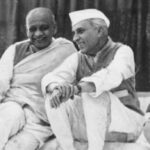 Was there any compulsion of Mahatma Gandhi to make Jawaharlal Nehru the Prime Minister?
Was there any compulsion of Mahatma Gandhi to make Jawaharlal Nehru the Prime Minister?
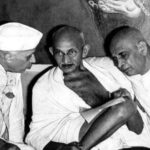 What Was The Role Of Jawaharlal Nehru In Indian Independence Movement?
What Was The Role Of Jawaharlal Nehru In Indian Independence Movement?
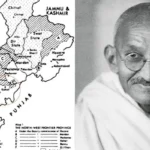 Why Mahatma Gandhi Is Viewed as the Primary Culprit for India’s Partition After 2014
Why Mahatma Gandhi Is Viewed as the Primary Culprit for India’s Partition After 2014
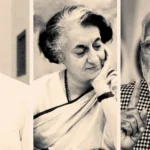 Nehru to Modi: How Indian Prime Ministers Have Shaped the Nation
Nehru to Modi: How Indian Prime Ministers Have Shaped the Nation
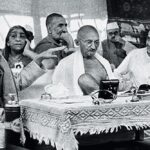 What Was The Role of Mahatma Gandhi in Partition 1947?
What Was The Role of Mahatma Gandhi in Partition 1947?
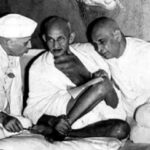 Sardar Patel – The Unifier of India in the Shadow of Partition
Sardar Patel – The Unifier of India in the Shadow of Partition
